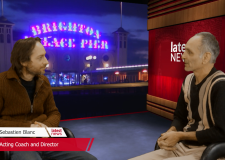Do the Media Negatively Represent Women in Politics?
Today, the number of women in parliament is higher than ever, but the ratio of female to male MPs still presents a poor outlook for the political ladies of the future.
Only 23% of MPs sitting in parliament today are female and yet we make up just over half of the adult population.This figure sadly represents an all-time high for females, who prior to 1987 had never accounted for more than 5% of sitting MPs.
Leading woman in politics and Brighton Pavilion MP, Caroline Lucas, said, “I think Parliament is very unwelcoming to women – the family unfriendly sitting hours, the sexism in Prime Ministers Questions, for example.”

Caroline is one of 147 female politicians that sit among 503 male representatives in Westminster and yet her blame isn’t directed at party politics, but the media instead.
“I think the media is part of the problem – women in politics cannot get it right from the media’s perspective– whether it’s the endless comments on your wardrobe or the tendency to deplore traits that are applauded in men. Strong women are depicted as ruthless unfeminine ball breakers.”
But what measures are in force to stop future generations from being put off a career in politics?
Doors opened to women of the future when they were granted the vote in 1918 but since then only 369 females have been elected as MPs.
Party politics aside, many of the leading groups have been pushing for change by introducing ‘all-women shortlists’ but is this enough?
Caroline said, “I think social media can play a role and so too can things like the Youth Parliaments, but we need to make sure these empower women and that means tackling sexism and inequality in society as a whole.”
The Speaker’s Conference on parliamentary representation is perhaps another short fall for us to consider, as during 2009 this committee was set up with the aim of moving towards equality.
However, as parliament disbanded in 2010, the committee also became obsolete and together with its recommendations, seemingly ceased to exist.
These recommendations do however live on fleetingly, as part of a Commons debate held every two years.
Apart from this, the International debate on gender and politics, held by the Commonwealth Parliamentary Association in 2012, also expressed a concern for change.
Caroline’s best advice for any future female politicians is, “To go for it. To identify a group of people who will support you, including critical friends, and use them to help you get through the inevitable tough times. To not be afraid to dream and to take risks.”
Political triumphs for ladies may be inevitably tricky, seeing as we have only had one female Prime Minister to date, but perhaps we should look to some of the strong female figures of today for encouragement.
For example, the unwavering political voice of female rights campaigner Malala Yousafzai has astounded the world.
Malala was shot three times in the head by the Taliban in 2012 to try to crush her powerful voice on education rights for Pakistani girls.
However, this did not falter her voice, nor did the Taliban’s threat to kill both her and her father.
Today Malala is an immense and widespread press influence on female politics and at just 16, is one of the most inspiring figures of the next generation.
Caroline described Malala as “Massively inspiring and has really captured people’s hearts because she’s so open and honest.”
Malala is perhaps an example of where the media has got it right, in this case there is no wardrobe or masculinity assessment needed.
However, there is an inspirational and heartfelt portrayal of a young activist that the nation has fallen deeply in love with.
Another example of a female widely looked upon by the media is none other than The Duchess of Cambridge, Kate Middleton.
Kate is a prime example of a media obsession, no outfit or event attendance escapes scrutiny, nor does the spending on George’s nursery.
Perhaps too often compared to Diana, The Princess of Wales, Kate and her partner Prince William know all too well of the effects of the mass media.
Nonetheless, the publicity Kate receives is unwavering and the nation’s fondness of her is perhaps a move into prominence for our royals.
My two inspirational women may arguably not be among the 147 sitting in parliament today but they may yet prove to encourage the girls of the future to look into politics.
Who do you find inspiring?
Lu Wright
@IfYouSeeLu
ifyouseelu.wordpress.com





















